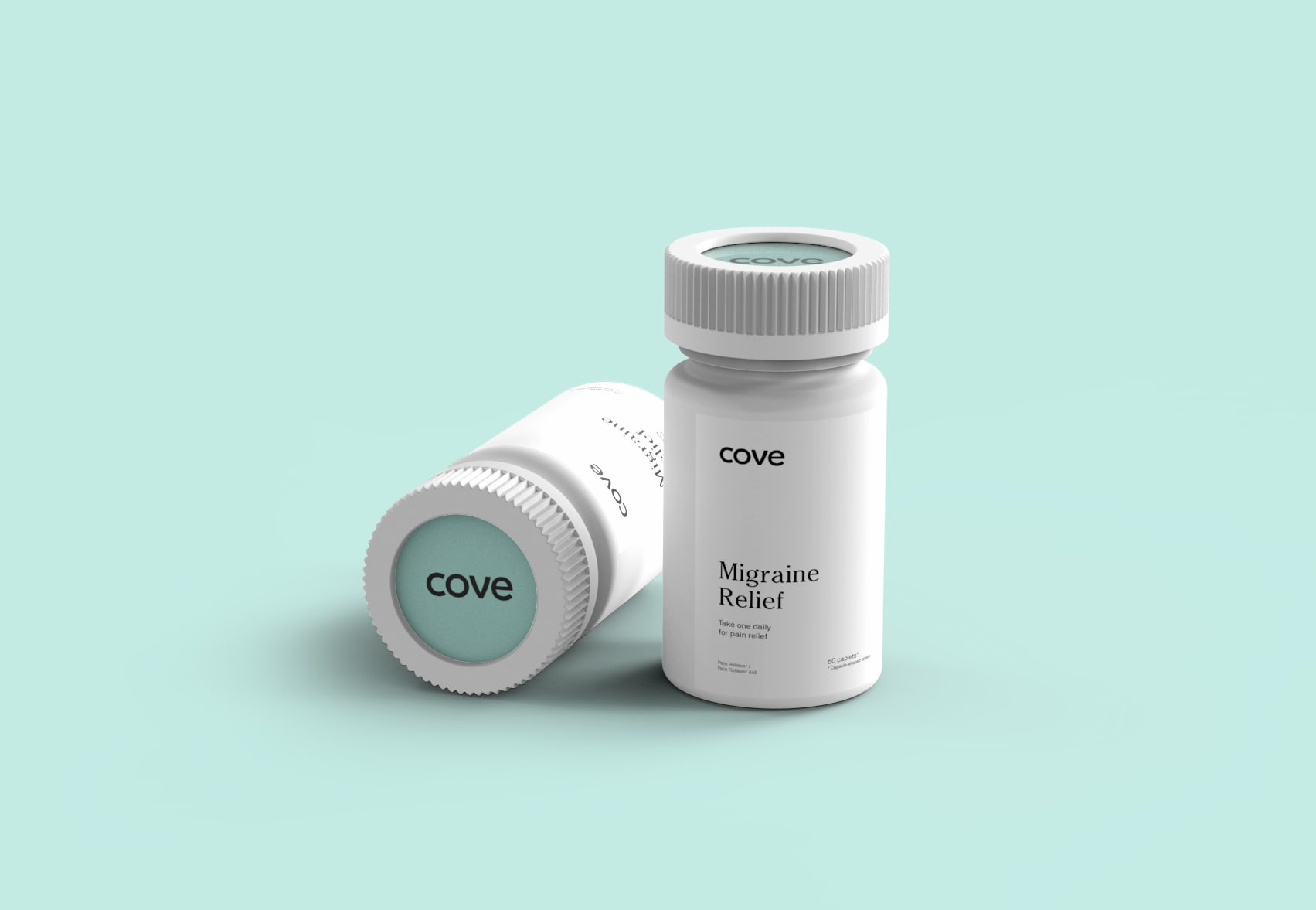In our always-on culture, it’s not easy to maintain an ideal work-life balance. Unfortunately, it’s even more difficult to juggle your personal, professional, and social lives when your jam-packed schedule’s constantly interrupted by migraine attacks.
The good news is, there’s a broad range of treatments available to help. The bad news is that there isn’t a cure yet, so finding an effective treatment doesn’t mean you’ll be able to stop migraine attacks forever.
To help anyone searching for ways to stop headaches from rudely getting in the way at work, family functions, and everywhere in between, Cove talked to migraine sufferers about how they personally deal with attacks. Here’s their best advice:
1. Be prepared and realistic about the pain
Jenny, 27, often gets headaches when she is so busy at work she forgets to eat and drink regularly. To keep her migraine attacks at bay (or at the very least, start combating pain as soon as she feels it coming on), she keeps an emergency stash of snacks, water, and ibuprofen (a.k.a. Advil, an NSAID pain reliever) on hand, always.
“I know that the sooner I deal with it, the sooner it will be gone. Although sometimes, I do push through—everything is more difficult, and I always feel like I am moving 10 times slower.”
While it can be easy in the moment to ignore the warnings signs of a migraine attack, or try to ‘push through the pain,’ Jenny knows it’s better to address the symptoms right away as it will only get increasingly difficult to function if left ignored.
2. Get comfortable saying ‘No’ to plans
It’s always disappointing when a migraine attack prevents you from doing something you were looking forward to. However, as Jamie was recently reminded, it’s so much worse to end up stuck somewhere with a headache and no real escape route.
That’s why it’s important to get comfortable saying ‘no’ to plans, or to be flexible with your schedule if you feel an attack coming on.
“When I need to miss something that I want to be at because of a migraine, I remind myself how much more comfortable I will be riding it out at home in bed. I wouldn't be able to enjoy the event or occasion while I am in pain, anyway.”
3. Put your health first
Missing an important gathering or function due to migraine can be upsetting, but your health needs to come first. Erin, 29, allows herself time to be sad when it comes to missing social gatherings she’s been looking forward to, yet ultimately reminds herself to practice self-care.
“After dealing with chronic migraines from meniere's disease for almost two years, I’ve learned that my health has to be my first priority. If I have to miss a social gathering I’ve been looking forward to—like a girls night when I haven’t seen my friends in a while—I let myself cry. But then, I will make myself healthy food and light candles, and just do something for myself to make myself feel better.”
4. Drink lots of water and take breaks from electronics
To ward off any oncoming attacks, Erin drinks lots of water and encourages other sufferers to do the same. You can even take an electrolyte supplement like Cove's Oasis to make sure you stay hydrated.
Erin’s also diligent about taking breaks from her computer while she’s at work, and giving her eyes periodic rests from other electronic screens throughout the day.
“Diluting your screen to a color that’s not as bright is helpful. There are certain settings you can use that have more violet tones that I have on both my phone and my computer. I also wear blue-light blocking glasses while I work.”
5. Be open and upfront about your condition, especially in the workplace
While Catie, 29, used to suffer through migraine attacks at work, she has since learned to be open and upfront with her co-workers and supervisors about her pain. Not only have her managers been understanding, she’s also found other colleagues who suffer from migraine who understand what she’s going through. With openness and honesty, she finds her supervisors will allow her to cut the workday short or not even come into the office if she has a headache when she first wakes up.
“For my job, I need to be fully functioning to avoid making any mistakes. If I have a migraine and am not functioning at my highest, I will ask to leave.”
If you're having trouble finding the right words to tell a supervisor about your migraine, you can find some tips and a template in this article.
6. Communicate with loved ones
It’s equally important to be upfront about migraine with your friends and loved ones, even though not everyone may understand it. Erin says:
“My advice would to be as honest as possible within your comfort level. My friends have come to understand the severity of my migraines, although they didn’t at first.”
And for those who don’t understand it? You have to trust that they want what’s best for you.
“I do not worry anymore about whether someone believes how debilitating a migraine is,” Catie explains. “I know how I am feeling.”
7. Understand your triggers
Heather, 31, has made it her mission to identify and understand her triggers so that she can do her best to avoid them. While it’s not a fail-proof way to stop an oncoming headache, it can help avoid, or at the very least, minimize the pain.
“If you can, try to understand your triggers. I know my triggers include exhaustion, stress, tension that builds up in my neck, and dehydration. Once you know them, do your best to avoid or mitigate them.”
Catie knows that muscle tension is a huge trigger for her own attacks, so she incorporates a stretching routine into her day and gets massages frequently, in addition to other tactics she uses to minimize stress.
“I try to get plenty of sleep,” she says. “I try not to overload myself with plans, and I use almost all of my vacation days to reduce stress.”
8. Find the medication or treatment that works for you
Of course, there are times that simply knowing and avoiding factors that can trigger your migraine isn’t enough. That’s why Heather is adamant about finding an effective migraine treatment that works for you.
“Medication can do wonders. Because of my effective triptan medication, I’m often able to power through migraines if I take my medication right away.”
Heather advises others to keep extra medication on themselves at all times, and in the places you frequent the most—like your desk at work, and in your car—and to stay prepared: “Never wait until your last pill to get a refill!”
9. Accept Your Condition
Sarah, 28, suffers from visual auras, and knows she must accept that when she experiences an attack, everything else must wait.
“I've learned not to fight it, even if that means just lying in a dark room for four hours.”
Heather also advises others to comes to terms with the fact that, sometimes, migraine will win. “If a migraine gets the better of me—the medication didn’t work or I didn’t medicate in time—I drink a lot of water, try to massage my neck, and when possible, try to sleep,” she says. “But on a higher level, I just accept that this is something I have to deal with.”
We know how helpful it can be to hear from real sufferers about how they deal with migraine, so we compiled some useful career advice in this article.
Of course, everyone is affected by, and responds to their condition differently. What works for your friends or relatives might not work for you. If it feels like your migraine is sabotaging your lifestyle, speak to a Cove doctor about effective treatment options and coping strategies that may work for you.
The information provided in this article is not a substitute for professional medical advice, diagnosis, or treatment. You should not rely upon the content provided in this article for specific medical advice. If you have any questions or concerns, please talk to your doctor.
Photo by Matthew Henry on Unsplash


